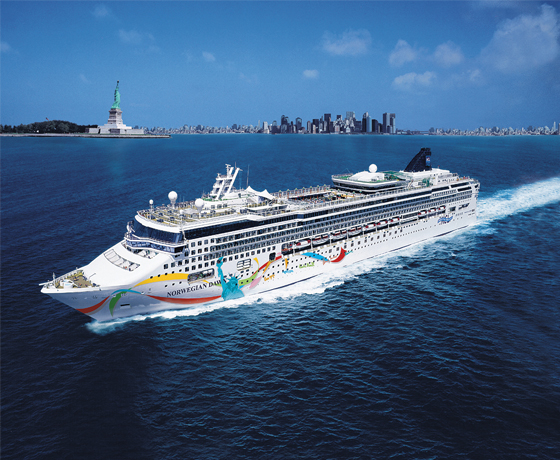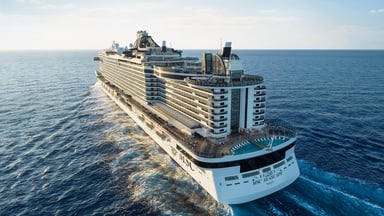
Deck jobs involve working onboard a vessel, mainly a cruise ship. These positions can include managing cargo lines, operating equipment, or providing first aid to crew members. These positions are a great way to gain valuable experience, especially if your university is not nearby. You will also have a lot of fun and be rewarded. You will need to be a US citizen to apply for a deck job.
The most sought-after marine jobs are deck jobs. The crew is responsible for operating the cruise ship's deck. Among the different roles onboard a cruise ship are deckhands, deck ratings, and officers. Each department oversees a specific aspect, such as navigation, maintenance, or passenger safety.
Experienced and qualified applicants are usually the best candidates for deck jobs. These positions require a range of skills, but most offer great salaries and benefits. A majority of cruise ships also offer time off along with free accommodation. Many will offer a 401K plan that can help you save for retirement. After a certain period of leave, some shipping companies will accept you back in the fold.

Those who are interested in pursuing a career in the maritime industry should first attend a maritime college or vocational school. Or, they might want to start as a deckhand and progress up. Although it is not difficult to become a deckhand, you will need to be able to navigate the boat before you can apply for an officer position. Depending on your skills, you might be able to find work right away.
A deck cadet is an example of a newly graduated maritime academy. He or she is given the chance to learn about all the main functions of the ship. The duties of a cadet include safety, navigation, and other tasks. One of the best aspects of cadet work is learning about the vessel's navigation system.
An environmental engineer is also a part its operations. This multidisciplinary field involves conducting environmental assessments, handling waste, and recycling. Other deck staff members perform food preparation, general maintenance, or other similar tasks.
The deck also features a "Peace Tower", which is a ring-shaped array of lights that provide illumination to the vessel’s deck and other areas of high use. This is vital for a ship who is often cruising on the open ocean.

The purser, responsible for currency exchange, is also found on deck. A variety of jobs are available aboard cruise ships. These include painting and cleaning. You will also find a catering crew that is responsible for food preparation as well as serving. Many cruise companies will also offer you a general salary, but the pay can vary depending on your level of responsibility.
FAQ
Are there any disadvantages to cruising?
Consider these things when weighing the pros and disadvantages of cruising. Some people might not want to spend all of their vacation on a boat. Others might prefer to stay closer to shore or in a hotel. Some people may feel uncomfortable living so far from land. These concerns can be overcome by choosing a cruise that allows for plenty of time on the shore.
Why are cruise vacations popular?
Cruises have become increasingly popular because they offer an exciting vacation experience for people who want to travel but don't want to deal with airport delays and long flights. They also provide a relaxing atmosphere where passengers can enjoy themselves without worrying about schedules and other details of daily life.
Travelers can also visit other destinations by boat, which makes it possible for them to cruise ships. Travelers have ample time to visit all of the attractions and sights available in each destination.
How long does it take from port to port?
It depends on many factors such as the distance between the port & the ship and the speed at which it travels. Some ships dock close to shore to allow them to quickly unload passengers. It takes longer for ships to arrive at land because some ship dock closer to the coast.
How does cruising work?
A deposit is required to reserve a cabin for a cruise. It can range from $50-$100. Your balance is due 30 days before departure. Check in at your cabin upon arrival at the port. Afterward, you may participate in one of the many onboard activities.
Statistics
- You'll need to budget around $80 per person per day for this option – and an additional 18% gratuity. (travel.usnews.com)
- The line estimates savings of 50% when you purchase this bundle. (travel.usnews.com)
- In addition, 10 to 15 percent gratuity is typically added to bar bills — for alcohol and soft drinks — and gratuities are applied to spa treatments. (cruiseline.com)
- For an example of savings, Royal Caribbean offers up to a 40% discount with a dining package. (travel.usnews.com)
External Links
How To
How to stay safe while aboard a cruise vessel
On a cruise ship, there are many things you should know before embarking on your journey. You must understand how to behave when onboard so you don't get into trouble. Here are some safety tips that will help you enjoy your trip.
-
Be mindful of where you are at all times. People tend to gather together on cruise ships, especially at meals. You're often surrounded by people who are eager to talk and eat. It can be easy to get distracted. You shouldn't allow this to distract you away from the important things you need to do. If you see someone doing something dangerous, like smoking or drinking alcohol, tell them politely to stop.
-
Your room key should always be with you on board the ship. This way, they'll know where to find you if anything happens to you. Keep your passport with you.
-
Your valuables should be kept out of reach. Most cabins are equipped with drawers beneath the bed. That's a great place to store valuables such as passports, credit cards, and money. Make sure that nothing valuable is visible from plain sight. Put your bags away in the closet so no one can see them.
-
Stay hydrated. Even though cruise ships are well-stocked with water, it can sometimes be hard to remember how much. Take advantage of the free bottled water available throughout the ship. You should avoid becoming dehydrated. Dehydration makes you tired and cranky, leading to fights or accidents.
-
Attention to announcements. Announcements are posted everywhere, including on TV screens and public address systems. They include safety procedures, emergency exits, and even weather reports. Pay attention to these announcements. They may save your life.
-
You should lock your door before you leave your cabin. Never leave your cabin unlocked, no matter how friendly a crew member seems. Thieves are known to break in through doors that are not locked. If you need to use the restroom, ask a crew member for permission first.
-
Avoid going overboard alone. It can take some time for the ship's crew and you to be rescued from the water. Your body may be attracted by sharks and other sea creatures. Waiting until help arrives is the best option.
-
It is forbidden to smoke in the elevator. These elevators can quickly become smokey due to their high pressure. If you feel dizzy or lightheaded, get off immediately. Even though the air outside is fresh, it doesn't mean breathing is safe.
-
The evacuation procedure. Every year, thousands are killed in elevator accidents. Follow the screen instructions in case of an emergency.
-
Make sure you are familiar with the fire drill. Fire drills take place regularly, almost every day. During a drill, everyone on deck has to evacuate. Follow the crew members' directions. Once the drill has been completed, return back to your cabin.
-
Ask questions before you accept food and drinks. Cruisers often experience food poisoning. Many people are unaware that certain foods cannot be eaten aboard ships. For example, raw oysters are forbidden aboard most cruise ships. If you aren’t certain whether or not the food that you’ve been served is safe for you, please politely decline to accept it and find another meal.
-
Take care when you use the pool. Many passengers have accidentally fallen into the pool. It is possible to slip and fall into the pool without being noticed. You may also slip and fall on the deck. Wearing proper footwear is a must and paying attention to the surroundings are important.